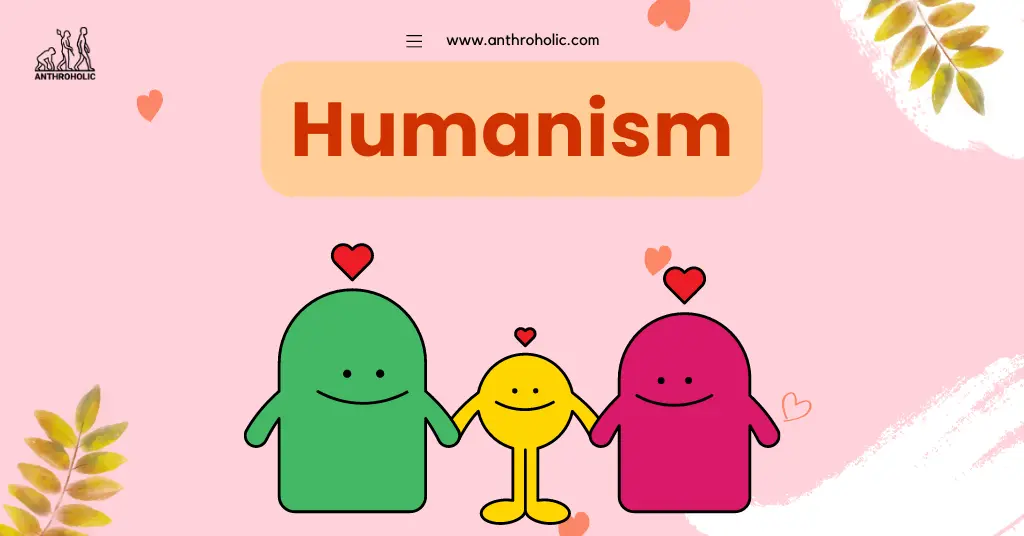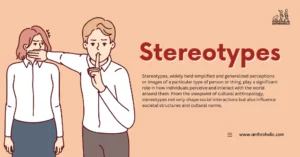AI Answer Evaluation Platform Live Now. Try Free Answer Evaluation Now
Humanism
Humanism, as an intellectual movement, has its roots firmly embedded in the historical development of European society and continues to impact global societal norms and values today.

The Origins of Humanism
Humanism originated in Europe during the Renaissance, a period of significant intellectual and cultural development between the 14th and 17th centuries.
- Renaissance Humanism: It was an intellectual movement that marked a departure from medieval scholasticism, which revolved around religious texts and was often constrained by theological frameworks. Instead, humanism sought to revive classical learning and values, placing greater emphasis on the study of humanity – its capacities, values, and achievements [1].
- Secular Humanism: In the modern era, humanism has often been associated with secularism. Secular humanism arose in the 19th and 20th centuries as a philosophical stance that emphasizes human values and potential, often without reference to a deity or an afterlife [2].
Core Principles of Humanism
The following principles characterize the humanist perspective:
- Reason: Humanists advocate for the use of reason, evidence, and critical thinking in understanding the world, as opposed to relying on faith, dogma, or superstition [3].
- Ethics: Humanists posit that ethical and moral standards should be derived from human need and interest rather than dictated by a supernatural authority [3].
- Human Dignity: Humanists affirm the dignity and worth of all people and their ability to determine right and wrong based on empathy, compassion, and a concern for human welfare [4].
Humanism in Various Disciplines
Humanism has greatly influenced various disciplines, including education, psychology, and ethics.
- Humanism in Education: Humanistic education seeks to develop free, self-actualizing individuals capable of reaching their full potential. Such education emphasizes creativity, critical thinking, and the development of the whole person [5].
- Humanistic Psychology: This perspective emphasizes personal growth, self-actualization, and the pursuit of happiness. It shifts focus from pathological behaviors to individual potential [6].
- Ethical Humanism: This philosophical perspective asserts that moral values can be derived from human experience and that ethical standards should serve human welfare, promoting human dignity, equality, and democracy [7].
The influence of Humanism in these fields can be summarized in the following table:
| Field | Impact of Humanism |
|---|---|
| Education | Encourages critical thinking, creativity, and holistic personal development |
| Psychology | Focuses on personal growth, self-actualization, and happiness |
| Ethics | Advocates for morality based on human welfare, dignity, equality, and democracy |
Humanism and Religion
Humanism, particularly in its secular forms, offers an alternative framework for ethical thinking that doesn’t rely on religious or supernatural beliefs. This, however, does not mean that humanism is inherently anti-religion.
- Religious Humanism: Some forms of humanism incorporate religious beliefs or spirituality while still emphasizing human capabilities and the importance of human-centered ethics [8].
- Interfaith dialogue: Humanism can engage in constructive dialogue with religious traditions, highlighting shared commitments to human dignity and ethical behavior [9].
Humanism in Contemporary Society
The principles of humanism continue to shape contemporary society and thought in significant ways.
- Human Rights: The concept of universal human rights, adopted by the United Nations and endorsed by most nations, embodies humanist principles of human dignity, equality, and the promotion of human welfare [10].
- Science and Technology: Humanism champions scientific inquiry and technological advancement as means to improve human life and society [11].
- Democracy: The humanist emphasis on individual autonomy and dignity has been influential in the development and spread of democratic forms of government, which prioritize the rights and voices of individual citizens [12].
Challenges and Critiques of Humanism
While humanism has been influential and generally positive in its impact, it is not without its critics.
- Relativism: Critics sometimes argue that a human-centered ethical system risks falling into moral relativism, where there are no absolute or universally applicable moral standards [13].
- Anthropocentrism: Environmental philosophers and ecologists have critiqued humanism for being too anthropocentric or human-centered, suggesting it downplays the value of non-human life and ecosystems [14].
- Human Exceptionalism: Critics from posthumanist perspectives argue that humanism overstates the difference between humans and other animals, leading to unjustifiable human exceptionalism [15].
Conclusion
Humanism has played an important role in shaping the course of human development, promoting the central role of human beings in understanding the world and creating moral systems. It values critical thinking, human dignity, and a commitment to human welfare, and continues to influence modern society in various fields.
References
[1] Davies, N. (1996). Europe: A History. Oxford University Press.
[2] Kurtz, P. (2007). What is Secular Humanism? Prometheus Books.
[3] Lamont, C. (1997). The Philosophy of Humanism. Humanist Press.
[4] Kirsch, A. (2005). The Future of Secular Humanism in America. The Humanist.
[5] Maslow, A. (1970). Motivation and Personality. Harper & Row.
[6] Rogers, C. (1980). A Way of Being. Houghton Mifflin.
[7] Singer, P. (1981). The Expanding Circle: Ethics and Sociobiology. Farrar, Straus & Giroux.
[8] Reese, W.L. (1996). Dictionary of Philosophy and Religion: Eastern and Western Thought. Humanities Press.
[9] Kamenetz, R. (2007). The Future of Interfaith Dialogue. Yale University Press.
[10] Morsink, J. (1999). The Universal Declaration of Human Rights: Origins, Drafting, and Intent. University of Pennsylvania Press.
[11] Grayling, A.C. (2002). The Humanist Tradition in the West. Routledge.
[12] Spalding, N. (2000). The History of Democracy: A Marxist Interpretation. Pluto Press.
[13] MacIntyre, A. (1984). After Virtue: A Study in Moral Theory. University of Notre Dame Press.
[14] Naess, A. (1973). The Shallow and the Deep, Long-Range Ecology Movement. Inquiry.
[15] Braidotti, R. (2013). The Posthuman. Polity Press.




